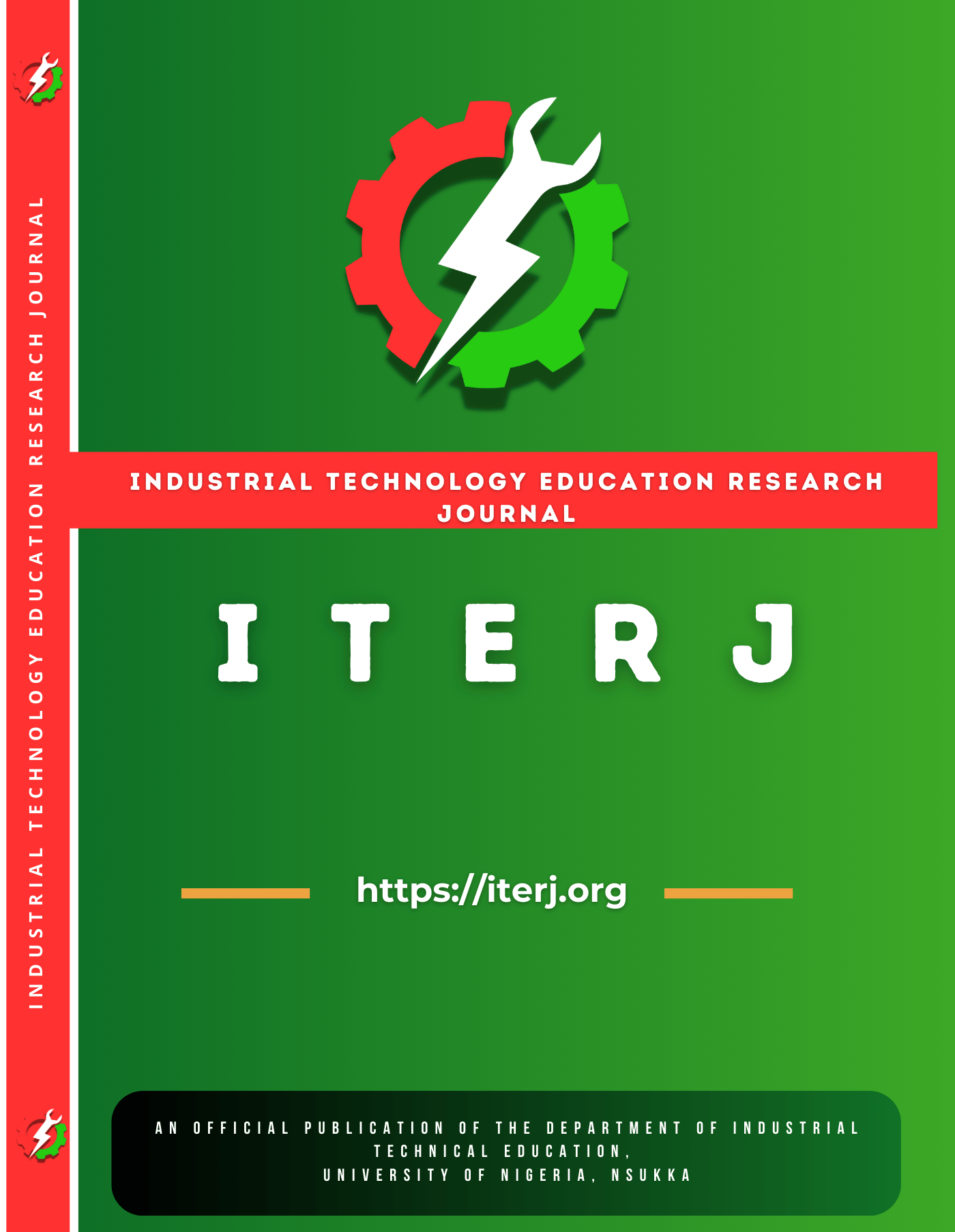Influence of Emotional Dissonance and Demographic Variables on Work Contentment ofElectro-Mechanical Technology Workers in Construction Industries
Keywords:
emotional dissonance, electro-mechanical, workers, technology, work contentmentAbstract
The study investigated the influence of emotional dissonance and demographic variables on work contentment of electro-mechanical technology workers in construction industries. Three research questions were developed and answered while one hypothesis formulated was tested at 0.05 level of significance. The study adopted a correlational research design and was carried out in North Central States of Nigeria. The population for the study was 150 electro-mechanical technology workers. There was no sampling because of manageable size of the population. The instrument for data collection was structured questionnaire titled Emotional Dissonance and Work Contentment Questionnaire (EDAWCQ). Three experts face-validated the instrument. The internal consistency of the questionnaire items was determined using Cronbach alpha reliability method and the reliability coefficient of 0.82 was obtained for items in Emotional Dissonance section of the questionnaire, and 0.81 for items on work contentment of electro-mechanical technology workers, while the overall reliability coefficient of the items in the questionnaire was 0.89. Five research assistants were involved in data collection using the Questionnaire. Out of 150 copies of questionnaire distributed, 147 copies were retrieved back which represent 92 percent return rate. Mean and Pearson product moment correlation method were employed to analysis data for answering research questions while regression analysis was conducted for testing hypotheses formulated. The findings of the study revealed that: (i) the extent of work contentment of mechanical technology workers in construction industries is moderately high, (ii)the correlation between emotional dissonance and work contentment of electro-mechanical Technology workers is very weak, (iii) A positive weak relationship exists between emotional dissonance and length of Service, (iv) A negative very weak correlation exists between emotional dissonance, age, gender and marital status of electro-mechanical Technology Workers. The findings on hypotheses revealed that significant relationship does not exist between emotional dissonance and work contentment of electro-mechanical technology workers. Recommendations include that work contentment of electro-mechanical workers in construction industries should be improved through workshops and seminars.








